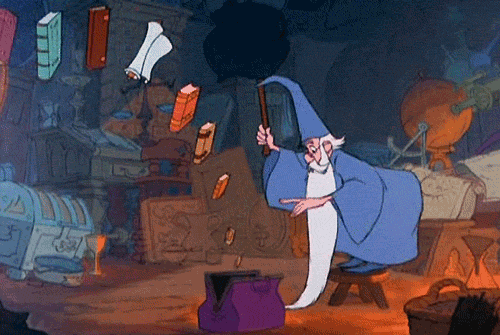 March 8th is International Women’s Day! Hooray! Here at LPL, I walk among powerful women every day within the stacks, not just from the U.S., but from across the globe. Being surrounded by these women’s words is a joy, even if it means my “To Be Read” list is destined to be enormous and overwhelming forever…
March 8th is International Women’s Day! Hooray! Here at LPL, I walk among powerful women every day within the stacks, not just from the U.S., but from across the globe. Being surrounded by these women’s words is a joy, even if it means my “To Be Read” list is destined to be enormous and overwhelming forever…
 My co-Book Squad-ers and I are all passionate about diversifying our reading choices despite a publishing world that still primarily focuses on (white) men. I feel very lucky to work with such awesome readers, as there is so much to be done.
My co-Book Squad-ers and I are all passionate about diversifying our reading choices despite a publishing world that still primarily focuses on (white) men. I feel very lucky to work with such awesome readers, as there is so much to be done.
VIDA, an organization dedicated to researching gender and racial equity, has consistently released stats on the publishing world, and they aren’t pretty. For instance: in 2014, female authors only represented 20% of books reviewed in The Nation, the vast majority of which were white women. Similarly, the New York Review of Books’ review staff was 81% male in the same year. (More easily digestible details regarding the diversity gap in various media can be found here.)
After learning about these disparities, I have been trying harder to read more diverse voices. Here are a handful of my favorite reads from many parts of the world.
Nigeria:
Akata Witch & Under the Udala Trees
Nnedi Okorafor – Akata Witch: Meaning “African American” in Nigerian Pidgin English, Akata is the term slung at 12-year-old Sunny by her peers after she moves to Nigeria from America. Dealing with a new community and new school would be challenging enough, but Sunny also sticks out due to her Albinism. Akata Witch is a YA fantasy tale of finding yourself and your superpowers (both figurative and literal, in the case of this book) in unexpected places. Okorafor has written a lot of Sci Fi and Fantasy for YA and Adult audiences, and this one has been my favorite. Rumor has it there’s a sequel coming this year, so check this out soon!
Chinelo Okparanta – Under the Udala Trees: This is a story focused around a young Nigerian woman coming to terms with her sexual identity. As reviewer Claire Heuchan states: “Given the dearth of Black lesbian stories in popular culture, the publication of Under the Udala Trees was a cool drink of water in a representational drought.” Okparanta gives us a story that is beautifully written and not sugar-coated. It’ll stick with you for quite some time.
The West Indies:
The Star Side of Bird Hill & Krik? Krak!
Naomi Jackson – Star Side of Bird Hill: Two sisters move from Brooklyn to their grandmother’s home in Barbados and adjust to a radical culture shock. The fictional town of Bird Hill is written so vibrantly that I found myself thinking about the people and places long after the last page.
Edwidge Danticat – Krik? Krak!: Haitian-born author Edwidge Danticat’s first novel was published when she was only 25. Often focusing on mother-daughter relationships and the diverse suffering of women, her work over the past couple decades is always incredibly moving. I’d start with this one – the short stories are loosely tied together, creating what feels like a rich conversation among Haitian women.
U.K.:
Caitlin Moran – How to Build a Girl: This book probably wins for most swear words used on this list. Caitlin Moran is a snarky, witty, and thoroughly honest writer, and this novel (based largely on her own upbringing) will make you cringe-laugh. Following an awkward misfit teen through her adventures in music journalism in the 1990s, How to Build a Girl spoke to my inner teenage angst, even if I didn’t deal with quite the same obstacles. You’ll laugh aloud… but probably won’t loan this one to your grandma.
Iran:
The Complete Persepolis / Persepolis
Marjane Satrapi – Persepolis: The first (okay, only?) graphic novel I was ever assigned in a college course, Persepolis is a fantastic feminist creation. Marjane Satrapi portrays her young adult life in Iran during and after the Islamic revolution. She hits upon heavy feminist (and general human rights) issues with a keen eye and a grace I’d never be able to manage.
North America:
All My Puny Sorrows, Love Medicine, & Esperanza Rising
Miriam Toews – All My Puny Sorrows (AMPS): One of my dearest friends and favorite people is, like Toews (pronounced “Taves,”) a Canuck and she recommended this book to me last year. Following a woman whose gorgeous, talented, brilliant sister is suffering from acute depression, AMPS is the only book that has made me laugh while sobbing. Toews draws upon her own life experience to portray an honest, and at times brutal, depiction of mental illness.
Louise Erdrich – Love Medicine: I had a helluva time trying to decide which of Louise Erdrich’s books to choose for this post. Last fall I binge-read her books during a major reading “phase.” An Ojibwe author continuously published since the late 1970s, Erdrich’s novels often follow a fictional reservation in North Dakota and its residents therein. Reading her works feels like getting to know a community – its joys and heartaches large and small – over an expanse of time. If you’re new to her, start with Love Medicine.
Pam Muñoz Ryan – Esperanza Rising: Following a young girl’s journey from wealth and stability in her Mexican hometown, through devastating news, and into migrant work in the U.S., was humbling and awe-inspiring. This book is digestible for middle-grade readers but I’d recommend it for adults as well. Read this book alone or with the children in your life and be prepared for a rich, difficult and necessary conversation.
Please note: there is SO MUCH MORE for me to read and learn, fiction from across the globe that I haven’t tackled yet or even heard about. For instance, I’ve read quite a bit of fiction from Nigeria but Vietnam? Not so much yet. I’d welcome any and all recommendations you’d like to send my way: kgramlich@lawrencepubliclibrary.org
-Kate Gramlich is a Readers' Services Assistant at Lawrence Public Library.



Add a comment to: International Women’s Fiction